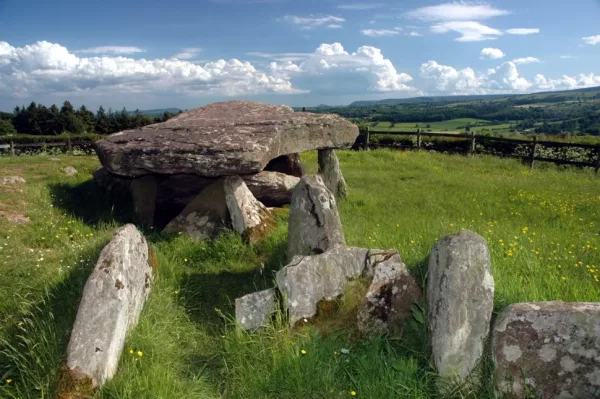A mysterious stone tomb in western England — known as Arthur’s Stone because of its links to the mythical King Arthur — originated almost 6,000 years ago as part of an elaborate “ceremonial landscape” across the whole area, according to archaeologists.
Excavations this year near the ancient stone structure in rural Herefordshire, just east of the River Wye between England and Wales, show that the site was first occupied by an earthen mound pointing to another ancient structure nearby; but that a few hundred years later, it was rebuilt and realigned to point to hills much farther south, project leader Julian Thomas, a professor of archaeology at the University of Manchester in the U.K., told Live Science in an email.
“This is a ceremonial landscape like those around Stonehenge or Avebury, but rather earlier,” Thomas said. “It certainly implies that this is a location that was politically or spiritually important at the start of the Neolithic.”


